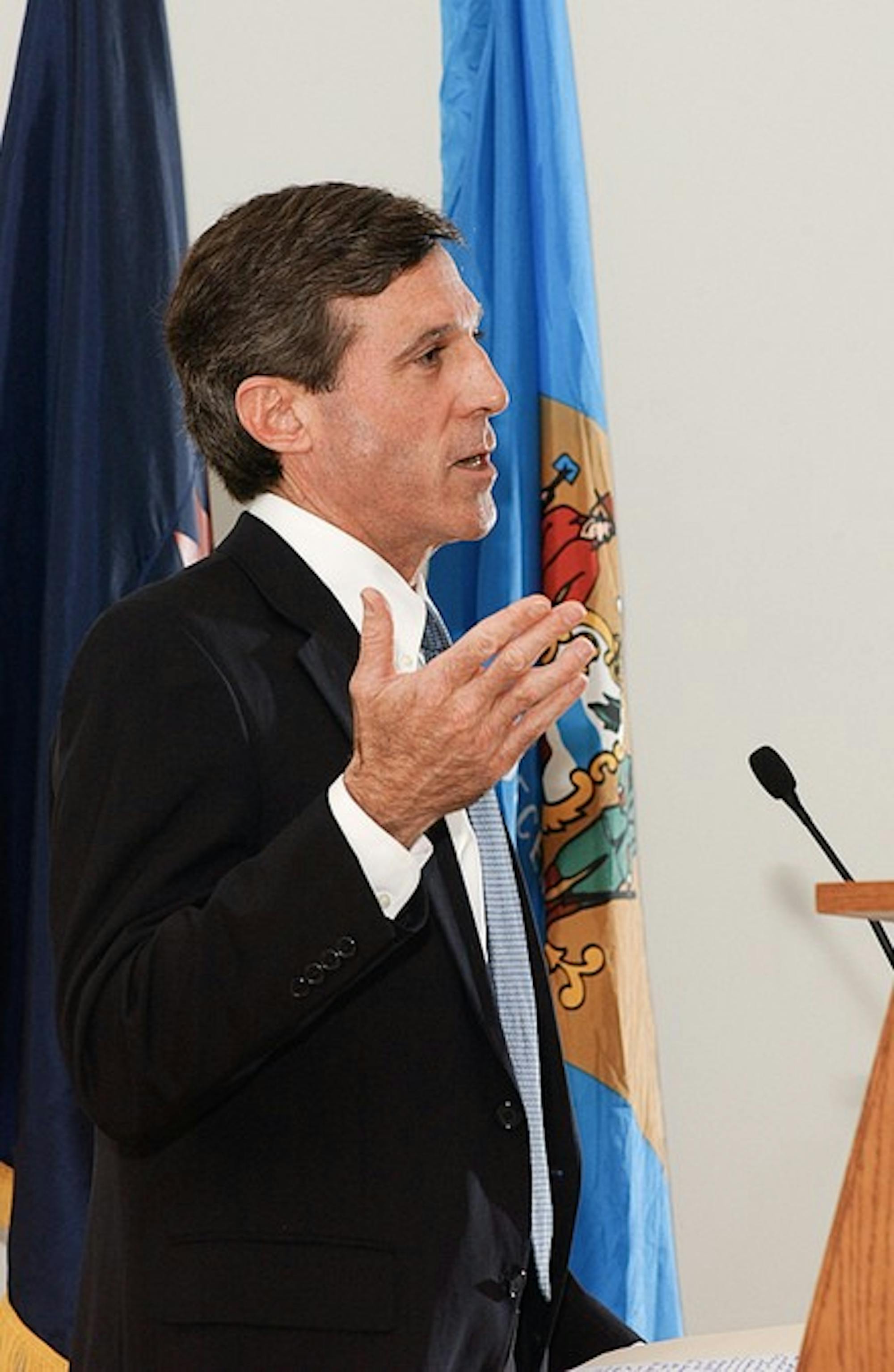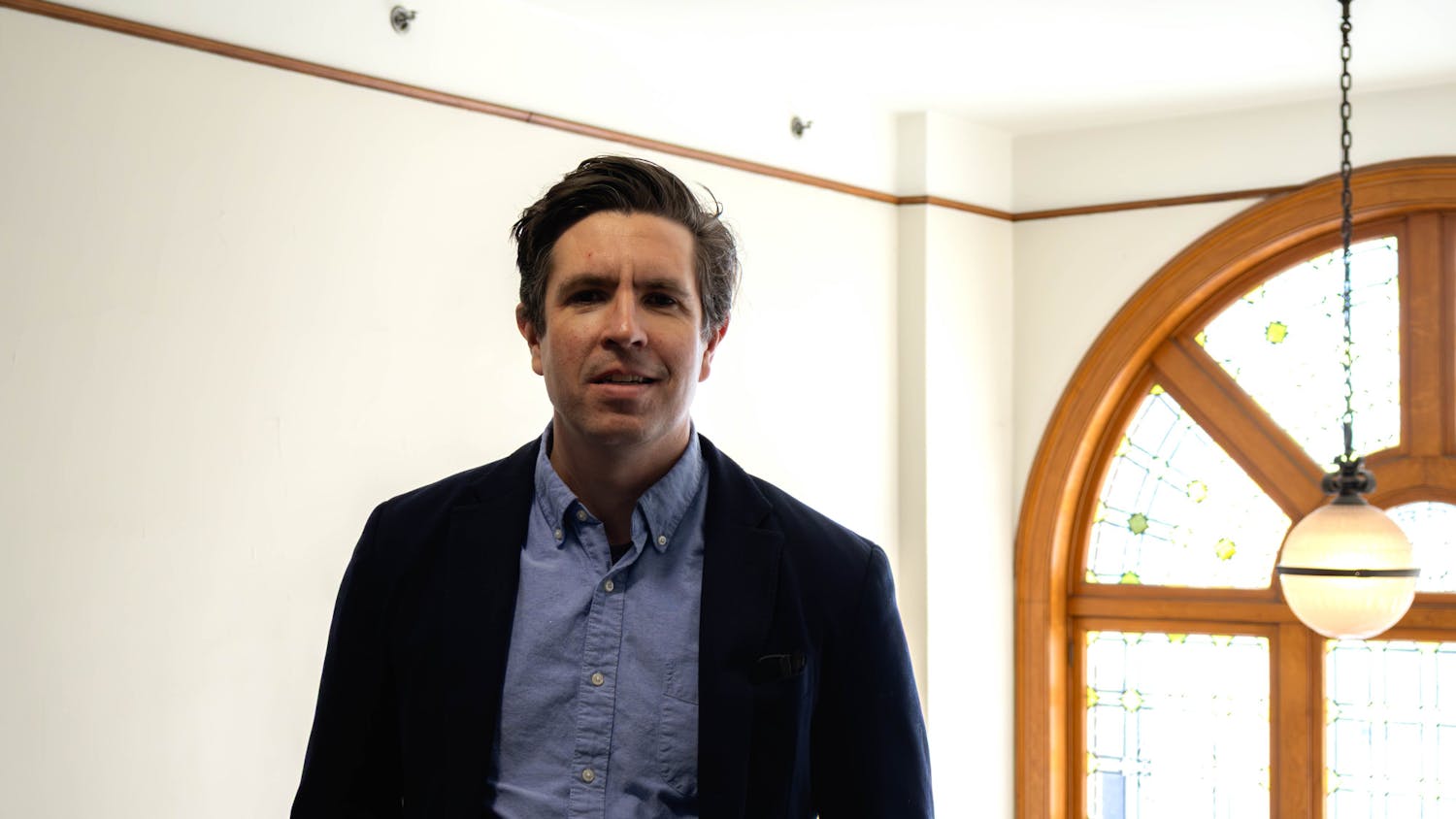Prior to his tenure as lieutenant governor from 2001 to 2009, Carney served as Delaware's secretary of finance and as deputy chief of staff to former Governor Tom Carper. Carney is currently the chief operations officer of Transformative Technologies, a green technology company in Delaware.
Carney ran for governor last September, losing the Democratic primary by only about 1,500 votes, he said in an interview with The Dartmouth.
"After [the primary] I realized I still have a strong commitment to public service, and I decided I want to give it another shot," Carney said.
Early in 2009, Carney said, he discussed his options with his family, at which point he decided he would run for Congress in 2010. Since then, he has received support from Delaware residents across the state whom he met in his previous offices, he said.
"As an elected official you develop friends, a team, a following," Carney said.
The 2008 loss was an instructive experience, Carney said. His Democratic opponent, Jack Markell, raised nearly twice as much money for the campaign as Carney, he said. As a result, Carney said he is focusing more intently on his fundraising efforts this time around.
In the past three months, he has raised about $270,000, which is just shy of his $300,000 goal, according to Carney.
The gubernatorial race also demonstrated the importance of developing a clear message, akin to a marketing strategy, for voters, Carney said.
"It's one thing to have great ideas and good plans for where you want to take this state or country, but I think you also have to do an effective job of communicating that message to the voters, because they make decisions on who to vote for based on the impressions and message that they get," he said.
For the 2010 election, the economy will likely remain the issue of greatest importance to voters, Carney said, adding that there will probably be a strong focus on job creation and preparing the unemployed to reenter the workforce. Consistent with that goal, he said, are improvements in education and health care reform. Carney estimated that in some under-resourced Delaware school districts, only 50 percent of students graduate from high school.
"It is totally unacceptable to have the rates of students that don't even graduate from high school that we do today," Carney said.
Carney also supports offshore wind technology and the manufacture of wind-generating towers in Delaware as a means to create jobs and position the state as a leader in creating green energy, according to his campaign web site. Although offshore wind energy has been a polarizing issue in some communities in other states, Carney told The Dartmouth he thinks Delaware's citizens are receptive to the idea. Carney said he was "instrumental" in helping to get a power-purchase agreement approved by the state legislature, in which electricity distributors will buy power from the offshore wind developer once the project is completed.
Carney said he is also trying to create a facility that can fabricate steel towers for wind-generating sites.
"It's old steel fabrication for new green energy application," Carney said.
Carney said that if elected to Congress, he would like to get more funds invested in science and technology education at the university level.
"Science and technology are going to drive the businesses and jobs of the future," Carney said. "We've always led the world in that area, but now there's a lot more competition."
Carney cited his ability to work with a team and bring people together as a strength that will aid him in the election, a skill he credits in part to his years on Dartmouth's football and lacrosse teams. Although Carney had never played lacrosse until he picked it up as a freshman, he was the team captain in his senior year, he said.
Carney also cited the Aquinas House, Dartmouth's Catholic Student Center, as a place that helped him develop his commitment to public service.
"I spent a lot of time there it was a place where I used to go to study and socialize, but [there was] also a spiritual component that I think was part of my long-term motivation for service," Carney said.
Unlike the gubernatorial race, there is a "good chance" that a second serious Democratic candidate will not enter the race, according to Carney. No other Democrats have announced their candidacy or have been reported to be considering a run.
The House seat is currently held by Rep. Mike Castle, R-Del., who is finishing his ninth term in Congress. Castle has yet to announce whether he will run for reelection, run for the Senate seat vacated by Vice President Joe Biden or retire. Carney told The Dartmouth that Castle said he is more likely to retire or run for the Senate than to seek a 10th term. Castle's recent fundraising has been lackluster, various media outlets reported this week, suggesting that he is not positioning himself for a Senate run.
Castle's office did not respond to requests for comment by press time.
Regardless of who his opponents may be, Carney said, he is excited for the race.
"It just feels really good to be back in the game," he said.




